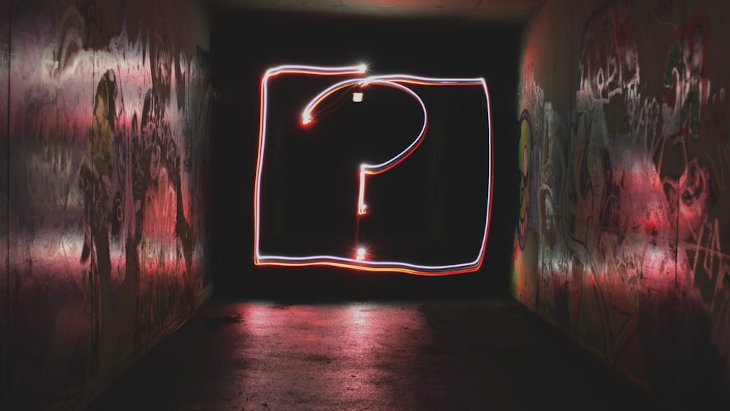 Iran’s Attack on Israel
Iran’s Attack on Israel


5 min read
Humility, nuance and admitting we don’t know are not signs of weakness, but strength.
Mark Twain once said: “It ain’t what you don’t know that gets you into trouble. It’s what you know for sure that just ain’t so.” Nobel prize winner Dr. Daniel Kahneman put it a little differently: “We’re blind to our blindness. We have very little idea of how little we know. We’re not designed to know how little we know.”
Indeed, when asked what he would eliminate in the world if he had a magic wand, Kahneman answered with one word – overconfidence.
Overconfidence has been blamed for the sinking of the Titanic, the nuclear accident at Chernobyl, the loss of Space Shuttles Challenger and Columbia, the subprime mortgage crisis of 2008, the great recession that followed it, and the oil spill in the Gulf of Mexico, among other things. Overconfidence has brought personal financial disaster, imploded relationships and ruined lives.
One person who understood this was King Solomon, the wisest of all men. In Ecclesiastes, which we read on the Shabbat during Sukkot, he describes his efforts to explore and understand. "I said I will be wise, but it remained elusive to me.” King Solomon confesses that he tried, analyzed, contemplated, but in the end of the day, he came up short, complete understanding was beyond his grasp.
What is he referring to? What did he try to apply wisdom to but was unsuccessful? Most say he is talking about the quintessential Torah statute, the red heifer, whose law is paradoxical. The impure person is purified from its ashes, but the pure person becomes impure. King Solomon tried to understand its mechanics, how and why it worked, but in the end, he concedes, v'hi rechoka mimeni, and it is too distant.
Rav Yosef Shaul Natanson says the word v’hi – "and it" in the verse "and it is too distant" refers to the entire Torah. He understands King Solomon as telling us: After I saw that I could not comprehend the reason for the red heifer, I realize that the reason for everything in the Torah was entirely beyond me.
Someone once challenged the Chazon Ish, a great Torah sage who died in the 1950s, about the challenge of theodicy, how bad and painful things can exist in the world. He was driven to make sense and understand the suffering. The Chazon Ish showed him a Tosfos, a commentary on the Talmud, and asked him to explain it. The man tried but failed to interpret or understand the Tosfos. The Chazon Ish told him, “If you don’t understand a few lines of Tosfos, how do you expect to understand the ways of God which is concealed from all mankind.”
In Psalms, the verse says, "How great are your ways, God. A fool doesn’t understand them...” Rabbi Meilech Biderman wonders why King David, the author of the Psalms, singles out the fool as not understanding them, when even the wise can’t comprehend the ways of God? He explains, what makes someone wise is that they know what they don’t know. The fool suffers from overconfidence, thinks he understands and knows everything. The fool thinks he or she has all the answers.
Our greatest scholars didn’t hesitate to say “I don’t know,” causing us to think more, rather than less of them.
We live in a world that makes us feel if we say “I don’t know” or “I don’t have a strong opinion about that” we are uninformed, weak or unsophisticated. But we come from a tradition that says exactly the opposite. Humility, nuance and admitting we don’t know are not signs of weakness, but strength. They don’t display ignorance; they show we are informed enough to know that we can’t possibly know absolutely.
The Talmud states, "Teach your tongue to say ‘I do not know, lest you become entangled in a web of deceit” (Brachos, 4a). Our greatest scholars didn’t hesitate to say “I don’t know,” causing us to think more, rather than less of them, and to place greater confidence in the things they did purport to know. Rashi, without whom the Talmud would be a closed book, is famous for the several places in which he writes, “eini yodei’ah, I don’t know” regarding the meaning, interpretation, or relevance of a particular verse or statement.
Perhaps this is why we read Ecclesiastes on Sukkot, "the time of our joy". Feeling entitled or capable of understanding everything only sets ourselves up for disappointment, brings about a failure of overconfidence, and leaves us feeling down, incomplete and unfulfilled. Of course, we should pursue understanding, try to gain wisdom, and obtain insight. But we must admit and concede that we can’t have the answers to everything and there are things we just can’t understand.
Listen to the advice of the wisest of all men: If you want to be happier in your marriage, at work, in your relationship with your children and with God, learn to say, I don’t know.
Photo credit: Emily Morter, Unsplash

Thank you for these words of wisdom.
I work in a hospital and admire the few doctors who admit they do not know.The arrogant ones are afraid to admit this very important information.I respect the doctors who say…I will do some research and until I am fully informed I will not act.